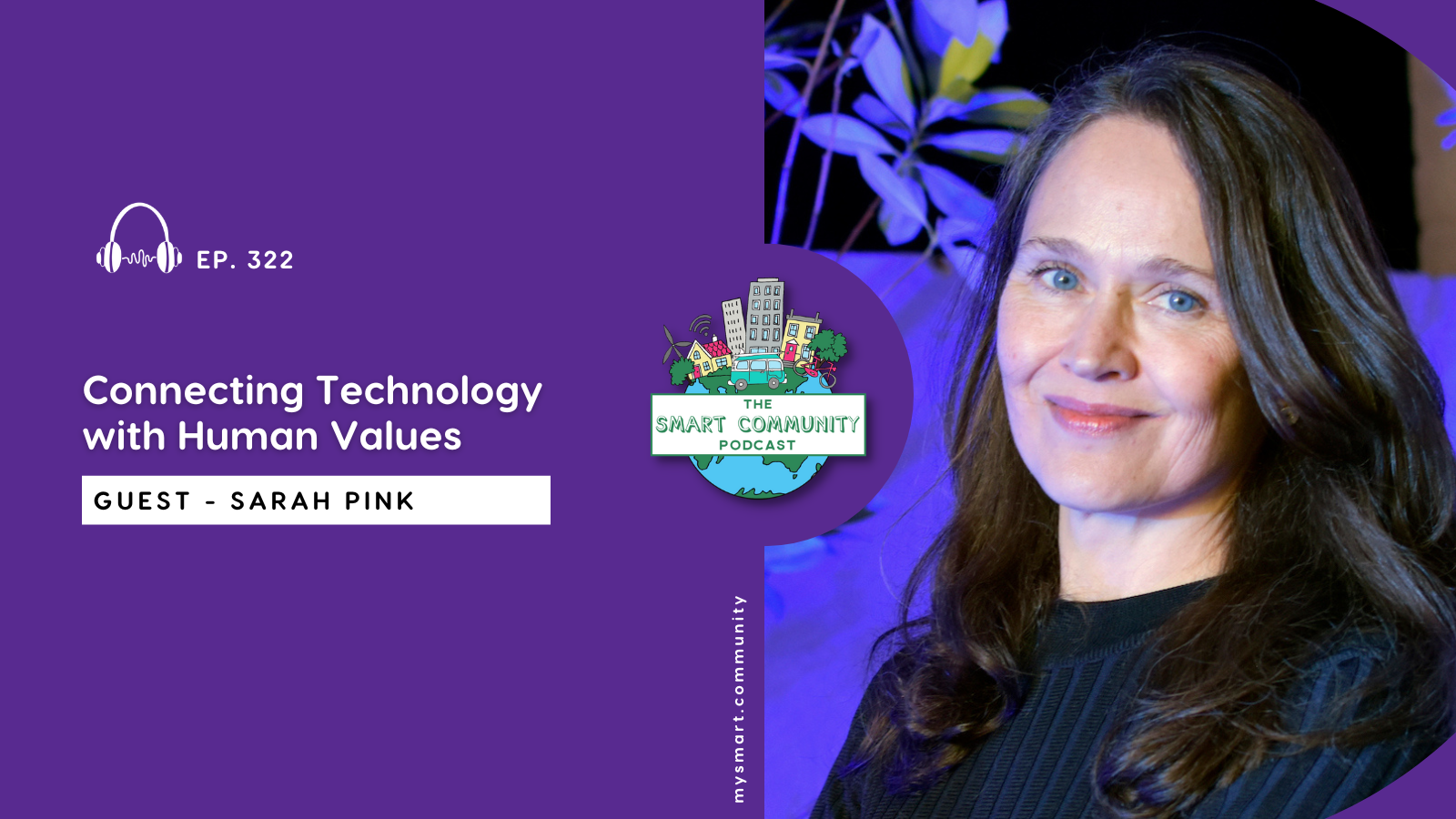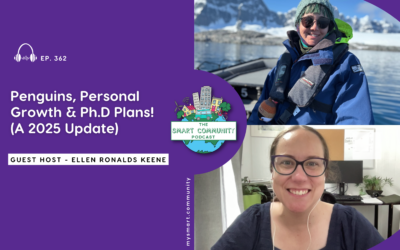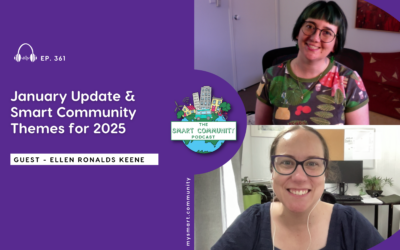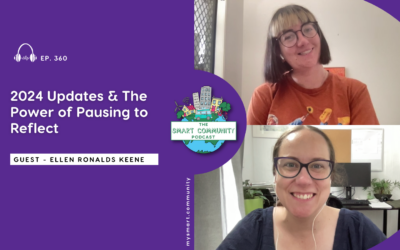Hi #SmartCommunity friends! In this episode of the Smart Community Podcast, I have a great chat with Sarah Pink, Founding Director of the Emerging Technologies Research Lab at Monash University in Melbourne. Sarah is a Futures and Design Anthropologist and in this episode she tells us about her background in both anthropology and as a documentary filmmaker, and how that has shaped her career. We then talk about some of the projects Sarah has been working on with the Emerging Technologies Research Lab, including some key insights from some of these projects. Sarah and I discuss why you need to start projects from a place of values and outcomes, rather than starting with the data, and how we can enable people to connect technologies with their human values. Sarah also tells us about a really interesting and powerful approach called ‘Thing Ethnography’ that involves roleplaying people as technology in order to understand what people actually want from their technology, not just what technologists think they want. We finish our chat discussing the problem of Smart City debates being driven by people who don’t understand real life contexts, and why we should be simulating future experiences to get a better understanding of how people behave in order to better plan for the future. As always, we hope you enjoy listening to this episode as much as we enjoyed making it.
Listen here:
What we cover in this episode:
- Sarah’s background as an anthropological film maker
- What a Smart Community is to Sarah
- Projects Sarah’s been working on with the Emerging Technologies Research Lab
- Key insights from the Smart Home for Seniors Project
- The importance of learning about what really works for people
- Why data shouldn’t be the start point of your project, but values and outcomes first
- Using Thing Ethnography AKA roleplaying people as technology in order to understand how people envisage technologies
- Emerging trends in home air purification trends and electric vehicle charging
- The cycle of protecting ourselves from the environment while also needing to protect the environment from us
- The problem of Smart City debates being driven by people who don’t understand real life contexts
- Why we should be simulating future experiences to get a better understanding of how people behave in order to better plan for the future
Quotes:
“Smartness is very much about that negotiation between people and technology. It’s not something that technology does to people.”
“The core message is really about ensuring that technologies, the way in which people can use them, and the data which is collected/that people can gain access to, is meaningful…It’s really always about understanding, finding people’s values, and then trying to think about how technological developments and smart tech and those kinds of advancements can actually really help.”
“Don’t just collect it because you can. There’s lots of data that can be collected. But where do you stop, where is it ethical to stop? Where does collecting the data actually kind of exceed the values of the people who the data is being collected about, but where does collecting particular data actually work for people?”
“We found that people are much more concerned about personal data about them as individuals being collected, but then much more open to kind of broader data being collected which will help them to navigate their lives as individuals.”
“If you ask a person to be a Smart Technology, that person will bring that very human smartness and human values, human ethics, into their interpretation of how the technology should act. So that’s exactly the reason why we asked people to embody these technologies, to roleplay them, to pretend that they were the technologies, and then tell us what they would do if they were the technology.”
Connect:
Connect with Sarah on LinkedIn or Twitter @pinkydigital
Find out more about the Emerging Technologies Research Lab on the Monash Website or on Facebook, Twitter, Instagram and LinkedIn
Connect with me via email: hello@mysmart.community
Connect with My Smart Community via LinkedIn or Twitter and watch on YouTube
Podcast Production by Perk Digital






0 Comments